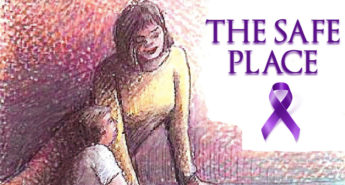 Humans are very complex in their reactions to life events. Victims of domestic violence often face extremely traumatic life experiences. Domestic violence is when a spouse, dating partner, or close family member uses violence, fear, and intimidation to control and manipulate their victim. Whether the abuser uses physical abuse or sexual, emotional, mental, or verbal abuse, the effects are deep and lasting. One of the possible effects is Post-Traumatic Stress Disorder or PTSD. PTSD is a disorder that can occur in individuals that have experienced a terrifying, traumatic, or dangerous event. Domestic violence would definitely qualify as a terrifying, traumatic, or dangerous event.
Humans are very complex in their reactions to life events. Victims of domestic violence often face extremely traumatic life experiences. Domestic violence is when a spouse, dating partner, or close family member uses violence, fear, and intimidation to control and manipulate their victim. Whether the abuser uses physical abuse or sexual, emotional, mental, or verbal abuse, the effects are deep and lasting. One of the possible effects is Post-Traumatic Stress Disorder or PTSD. PTSD is a disorder that can occur in individuals that have experienced a terrifying, traumatic, or dangerous event. Domestic violence would definitely qualify as a terrifying, traumatic, or dangerous event.
When we think of PTSD, we often think of soldiers returning from a dangerous battlefield. Veterans with PTSD is definitely a serious issue in our nation. But did you know that woman experience PTSD at more than twice the rate that men experience it? And specifically, more that 10% of female domestic violence victims develop PTSD.
So what is PTSD? PTSD is an ongoing reaction to trauma long after most people would have recovered naturally. Symptoms usually begin within three months of the traumatic experience, but can begin years later. In those that fail to recover, the condition becomes chronic. Not only does the person relive the experience over and over, their bodies react and respond as if the person is currently re-experiencing the trauma.
How is a person diagnosed with PTSD? To be diagnosed with PTSD, the patient must show signs of all four of the following symptoms for at least one month:
- Re-experiencing Symptoms: flashbacks, reliving the terrifying experience over and over, nightmares, overwhelming frightening thoughts.
- Avoidance Symptoms: Avoiding places, people, objects, events, thoughts, or anything that reminds them of the event.
- Reactive Symptoms: Easily startled, angry outbursts, struggles with sleeping, feeling tense or on edge. (Also called hyperarousal.)
- Negative Mental Symptoms: Fear, anxiety, shame, guilt, hopelessness, distrustful, numb, trouble remembering details of trauma.
To recover from PTSD, a person needs a combination of skilled therapy, a strong support system, coping strategies,and often, specialized medication. Those with the highest chance of recovery have a support system that understands the struggle and is willing to walk with them through the healing process. There is hope for healing from PTSD! Talk to your doctor about possible treatment options. Practice self-care. Be patient with yourself – healing take time.
For more information about the effect of domestic violence or to escape domestic violence, call 1-888-554-2501, anytime, day or night. We have advocates standing by to help.
https://www.ptsd.va.gov/understand/what/ptsd_basics.asp
https://flo.health/menstrual-cycle/health/symptoms-and-diseases/post-traumatic-stress-disorder
https://www.psycom.net/PTSD-symptoms-women




Leave a Reply